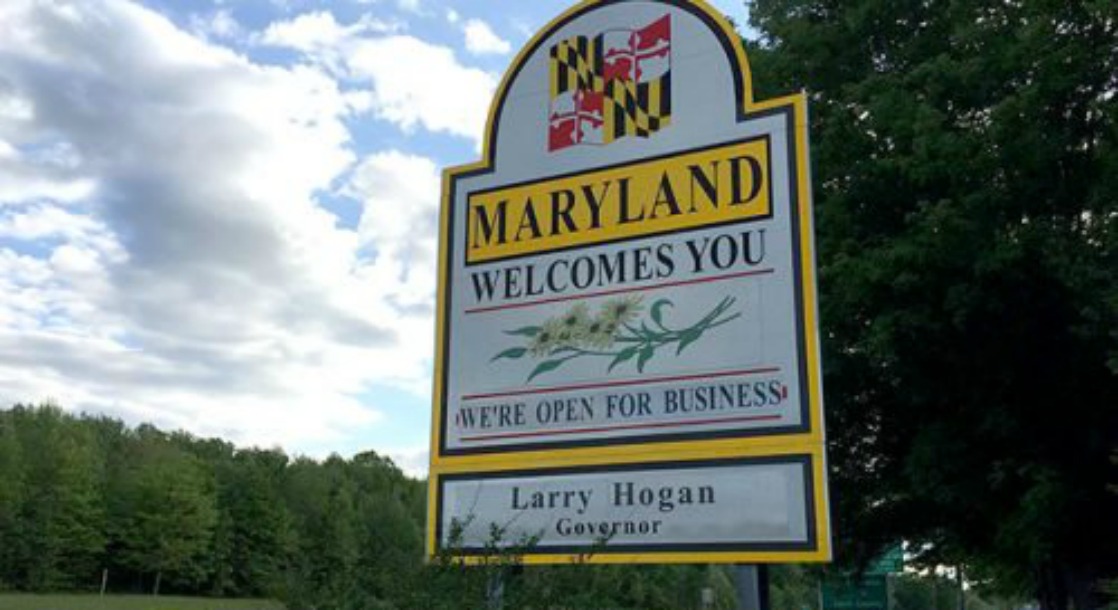Medical marijuana has been legal in Maryland since 2014, but years of regulatory negligence have left patients without any state-approved access. Dispensaries are finally slated to open their doors and start selling pot this Fall, but a new discovery could delay the fledgling program even further.
According to an investigative report from the Washington Post, the experts tasked with selecting which applicants would be awarded licenses and permits to operate medical marijuana businesses had a number of undisclosed personal and professional relationships with the ganjapreneurs whose businesses they were grading.
Because the wide world of legal weed is actually pretty small, it’s not surprising that the people with enough knowledge to properly evaluate the state’s cultivation, distribution and retail applications also happen to be heavily involved in the industry themselves, but uncertainties surrounding previous knowledge and disclosure are raising more questions than they’re answering.
To curtail such biases, the Regional Economic Studies Institute (RESI) at Towson University was commissioned to oversee the selection committee. Names of applicants and experts were hidden from each other and the public, creating a double-blind study that the Institute hoped would make coercion impossible. Still, experts were able to recognize proprietary products and skills, and researchers were unable to catch all of the industry ties.
In one instance, selection committee member Julia Germaine, the co-founder and current compliance manager of Massachusetts medical marijuana business Temescal Wellness, signed a form stating she had “no known relationships” with anyone applying for a MMJ license in Maryland, but less than two months later it was found that Germaine’s husband and Temescal co-founder, Nial DeMena, had submitted applications under the very same brand that the couple runs in Massachusetts.
When pressed about the convenient relationship, Germaine stuck by her claim that she had no idea her husband was applying for MMJ permits in Maryland and that he was not aware of her status as a selection committee member.
“Did I know? Of course not,” Germaine said in a telephone interview with the Post. “You can look at my scores and evaluate the individual scores and see no irregularity, Temescal must have written a good application across the board.”
Germaine alerted the institute when she recognized a security officer’s credentials while reviewing the Temescal application, but because it didn’t have a name on it, the institute did not remove her from her committee role.
“It is not a conflict of interest simply to know someone professionally who is working in the industry,” Daraius Irani, the head of the Towson institute, said. “However, had Julia Germaine revealed to RESI that her husband was the general manager of a company that was applying for a license, or that she was affiliated with a company that was applying for a license, she would not have been an evaluator at all.”
In another instance, the Post found out that two experts with ties to Washington D.C. dispensary Metropolitan Wellness Center had not been entirely honest about their industry relationships. While Vanessa West, the general manager of Metropolitan Wellness told the institute about her ties to investors who would be applying for licenses in Maryland, Mike Cuthriell, the president of Metropolitan Wellness failed to notify the institute, despite the very same connections as West.
State officials are still looking into the irregularities, but if you ask industry advocates, while the permitting process was less than ideal, delaying the MMJ market any longer would only be doing a disservice to Maryland’s patients in need.
“It illustrates the fact that when you have government granting a limited number of licenses, there needs to be full transparency with the public,” Kate Bell, a lobbyist for the Marijuana Policy Project, said. “Setting up this system, there was no transparency.”
Now that the process is complete, albeit shadily, the Post was able to find the names of the committee experts and their roles thanks to a Freedom of Information Act request. You can see the names and expertise of all of the licensing members here.











